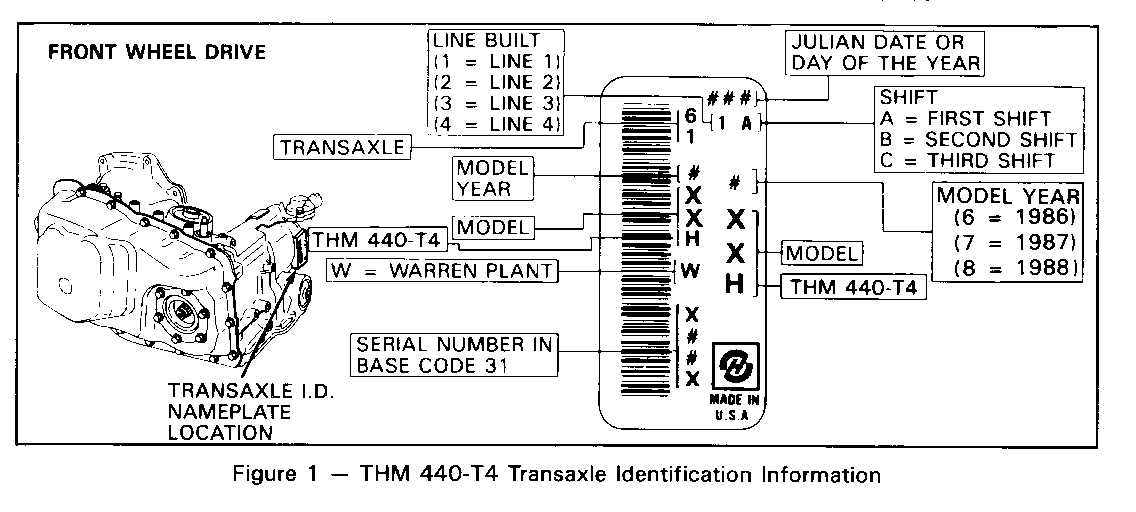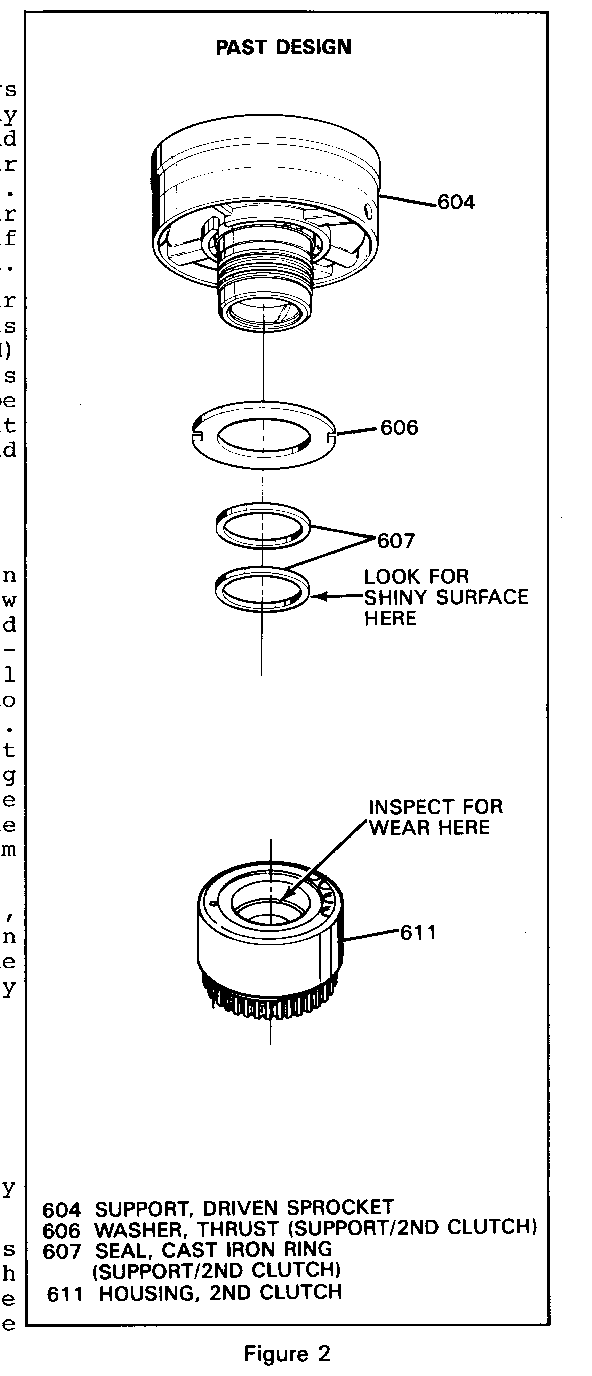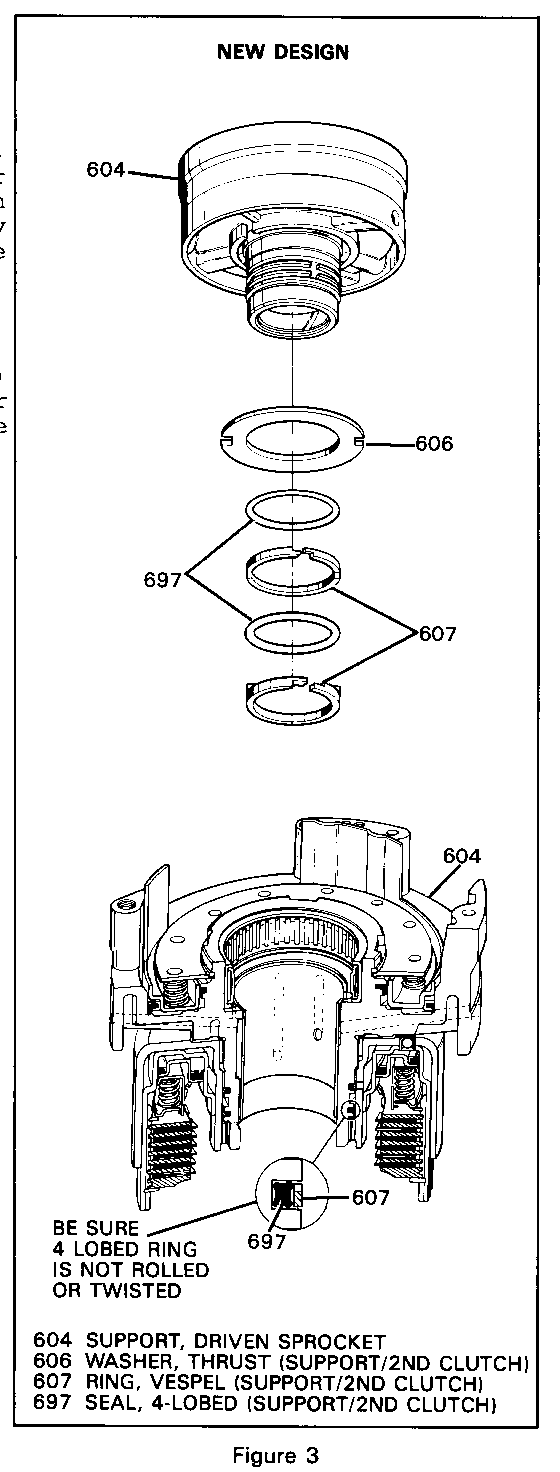SOFT, SLIPPING/NO 1-2 SHIFT POSSIBLE CLUTCH HSG WEAR

MODELS/YEARS: 1984-1986 CUTLASS CIERA, DELTA 88, NINETY-EIGHT AND TORONADO MODELS WITH THM 440-T4 (ME9) TRANSAXLES
Bulletin Covers:
A soft, slipping or no 1-2 shift condition may result if the two cast iron seals between the driven sprocket support and 2nd clutch housing bind to the driven sprocket support and wear into the 2nd clutch housing.
Date of Production Change: (Figure 1)
Start of production for all 1987 THM 440-T4 transaxle models.
Service Action: (Figure 2) --------------
Inspect the cast iron oil seal rings (607) for wear (indicated by a shiny surface on the O.D.) and the 2nd clutch housing (611) for wear (grooves caused by the seal rings). The driven sprocket may not appear affected, but must be replaced if these wear conditions are present.
For all 1984 through 1986 model year THM 440-T4 transaxles, it is recommended that the new 1987 vespel (TM) oil seal rings, 4-lobe ring seals and driven sprocket support be installed with other parts that indicate wear (such as the 2nd clutch housing).
Service Parts Information:
Due to changes in the driven sprocket support for 1987, the new vespel (TM) oil seal rings and 4-lobe ring seals are not interchangeable with the cast iron oil seal ring on models built prior to 1987 start of production (SOP). Changes made to the driven sprocket support include deeper seal ring grooves and "cutouts" to accommodate the ring tongs which prevent the vespel (TM) oil seal rings from rotating (refer to Figure 3).
The new vespel (TM) oil seal ring, 4-lobe ring seals and driven sprocket support are included in the following service package assembly and services all model years:
Model Years Part Number Description ----------- ---------- ----------- 1984 - 1987 8662523 Driven Sprocket Support Assembly Complete
Refer to the appropriate parts catalog for other part numbers (such as 2nd clutch housing) for the appropriate year and model transaxle being serviced.
Service Notes: (Figure 3, Item 697)
IMPORTANT- When installing a 4-lobe ring seal, make sure that it is not rolled or twisted. Lubricate rings with transexle fluid or petroleum jelly for easier installation into the 2nd clutch housing.
Service Manual Reference:
Refer to the THM 440-T4 (ME9) automatic transaxle unit repair section in the appropriate service manual.



General Motors bulletins are intended for use by professional technicians, not a "do-it-yourselfer". They are written to inform those technicians of conditions that may occur on some vehicles, or to provide information that could assist in the proper service of a vehicle. Properly trained technicians have the equipment, tools, safety instructions and know-how to do a job properly and safely. If a condition is described, do not assume that the bulletin applies to your vehicle, or that your vehicle will have that condition. See a General Motors dealer servicing your brand of General Motors vehicle for information on whether your vehicle may benefit from the information.
